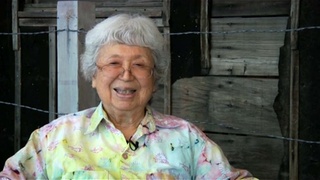Interviews
Don’t Make Waves
Well, I think I, actually I think it did a great deal for me. I mean, as I mentioned before, I was reluctant, I wanted to be all-American and you know, I just wanted to be a part of a society where I wasn't different or whatever. I mean, actually, we were kind of -- the WRA when we left camp, told us we should be unobtrusive. Don't make waves and all of this -- we were told this -- and don't congregate, so we, most of us, we were very quiet. And then we, well, like me, I was going to college and I tried to just keep my nose in the books and you know. So when I started to get involved and accept what had happened to me during the war, I became much more outspoken.
Date: September 11, 1997
Location: California, US
Interviewer: Becky Fukuda
Contributed by: Denshō: The Japanese American Legacy Project.











